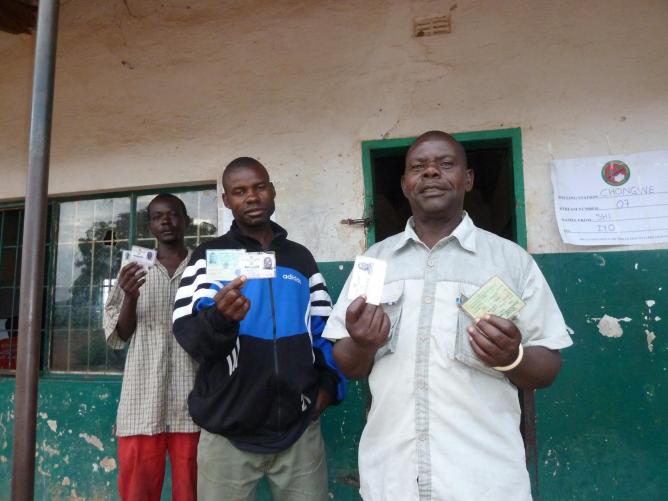Zambia: Boombox Politics And The Next Generation

The general election of 20th September 2011 saw Michael Sata winning the race to be the fifth president of Zambia, defeating Rupiah Banda. After nearly twenty years of stagnation and frustration, Zambia’s recently elected government fills the next generation with hope for a bright future.

What is Zambia to those who spend their lives there? This is a question that has too often been ignored by outsiders. In the 1850s David Livingstone ‘discovered’ the Victoria Falls and branded them with his Queen’s name, as if the locals had not cottoned on to the existence of 546 million cubic metres of water per minute thundering down from such height. Similarly, Livingstone’s modern day equivalents – the adventure tourists – race to Zambia in search of thrill-a-minute travel experiences: an adrenaline feast of paragliding, white water rafting and safaris, without stopping for breath to contemplate the vibrant and deep culture of the country they are racing through.

‘Zambia is a peaceful, Christian nation’. Visiting the country in the run up to their pivotal general election in the summer of 2011, I asked whether there would be violence. The resounding answer was always the above statement. One man posited this in rather more cynical terms, declaring ‘We have nothing to fight for, or over’. Though an over-simplification, there is, perhaps, some truth in the statement. Unlike its neighbouring countries of Zimbabwe, Angola, and the Democratic Republic of Congo, Zambia has escaped being torn apart by civil strife and warmongers greedy for control of resources. Part of this absence of crippling war stems from an undivided and predominantly Christian populace, unlike states like Nigeria where religious division is strong. Somewhat ironically then, the country’s major barriers to development spring from crippling issues that do not sound as dramatic as diamond conflict and tribal warfare. Instead, rural Zambia is held back by lack of access to basic information, poor roads, indifference and ignorance towards the HIV/AIDs epidemic and alcoholism.
Despite the hardship, in the anticipation and tension of pre-election fervor, I witnessed a country of open and dynamic people on the brink of change they so desired. As the ruling party MMD (Movement for Multiparty Democracy) and their aged president Rupiah Banda plundered state funds and World Bank loans to fuel their campaign, posters were plastered over all available public space whilst free beer and chitenge (a traditional brightly patterned cloth worn by women in a sarong-like fashion) were distributed from the back of lorries accompanied by political slogans blared through megaphones to lilting jingles akin to those of an ice cream van. The MMD had been in power for a monumental and choking 20 years and according to popular opinion, the government was characterized by inaction and corruption.

Meanwhile, the opposition supporters waited in the sidelines, biding their time and biting their collective lips with the romantic slogan ‘Don’t Kubeba!’ which roughly translates as ‘Don’t tell them, know in your heart’ in regard to voting preferences. Michael Sata, of the Patriotic Front purports to be a man of the people promising action, employment for Zambians and an end to the country’s crippling poverty. His victory was greeted with widespread jubilation in a country whose lifeblood is music, crowds took to the streets dancing and chanting ‘Let’s go Sata, let’s go’ and ‘Don’t Kubeba!’ The hope is that this new government will unleash the energy of his youthful population, and that those traveling to Zambia in the coming years will leave with more than pictures of waterfalls and safaris, by slowing down and being swept along, not only by the powerful Zambezi River, but by the current of hope and positivity towards a fruitful future. Time will tell.
Since you are here, we would like to share our vision for the future of travel - and the direction Culture Trip is moving in.
Culture Trip launched in 2011 with a simple yet passionate mission: to inspire people to go beyond their boundaries and experience what makes a place, its people and its culture special and meaningful — and this is still in our DNA today. We are proud that, for more than a decade, millions like you have trusted our award-winning recommendations by people who deeply understand what makes certain places and communities so special.
Increasingly we believe the world needs more meaningful, real-life connections between curious travellers keen to explore the world in a more responsible way. That is why we have intensively curated a collection of premium small-group trips as an invitation to meet and connect with new, like-minded people for once-in-a-lifetime experiences in three categories: Culture Trips, Rail Trips and Private Trips. Our Trips are suitable for both solo travelers, couples and friends who want to explore the world together.
Culture Trips are deeply immersive 5 to 16 days itineraries, that combine authentic local experiences, exciting activities and 4-5* accommodation to look forward to at the end of each day. Our Rail Trips are our most planet-friendly itineraries that invite you to take the scenic route, relax whilst getting under the skin of a destination. Our Private Trips are fully tailored itineraries, curated by our Travel Experts specifically for you, your friends or your family.
We know that many of you worry about the environmental impact of travel and are looking for ways of expanding horizons in ways that do minimal harm - and may even bring benefits. We are committed to go as far as possible in curating our trips with care for the planet. That is why all of our trips are flightless in destination, fully carbon offset - and we have ambitious plans to be net zero in the very near future.












